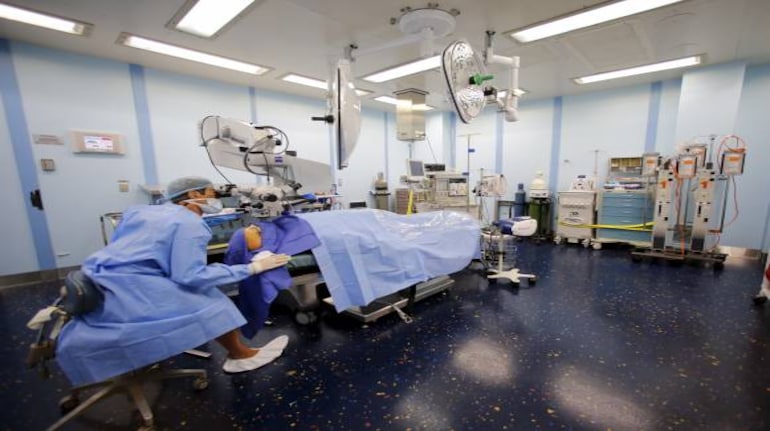



Ashwini Rajan (name changed), had admitted her 64-year-old father to the emergency ward of a large private hospital in Mumbai after he suffered a heart attack. He was kept in a coronary care unit. Her father survived, and was discharged on fifth day. But Rajan's shock, she was asked pay an additional Rs 35,000. This wasn't covered as part of her insurance.
The hospital management told her that this additional cost was due to COVID-19 testing, personal protection equipment (PPE) and other related materials.
Analysts estimate that the COVID-19 related infection control measures such as testing in-patients and staff, PPE for health staff, social distancing protocols and human resources costs is resulting in bills getting inflated by 15-20 percent over and above the regular charges.
Hospitals say that the insurance companies are not covering the additional costs, forcing patients to pay out of pocket.
"The cost of healthcare has moved-up. We are in talks with various insurance companies and third party administrators (TPAs) for review of rates," said Abhai Soi, Chairman of Max Healthcare.
Max Healthcare said it will be testing all its 24,000 employees and in-patients. It has also announced that all new patients would also be tested at the time of admission.
The decision to test all in-patients comes days after concerns were raised among the staff at Max Super Specialty Hospital in Saket, Delhi when two patients admitted to the hospital tested positive for COVID-19. At least 39 healthcare workers, including nurses and doctors, who came in contact with patients, had to be quarantined.
But the testing doesn't come cheap. It costs about Rs 4,500 per test in a private labs, though they are free at government labs. Max said it will use pool testing for its employees to reduce costs while individual PCR testing will be done for all the patients admitted in the hospital.
As of now, there is no consensus between hospitals and insurance companies about these charges. Insurance companies are not ready to offer beyond the fixed package rates.
In Charts | Economic impact of lockdown on Centre and statesS Prakash, Managing Director of Star Health Insurance, told Moneycontrol that a wider interaction between hospitals and medically qualified insurance professionals is required.
"Hospitals have lost their regular incomes due to lower occupancy, steep drop in outpatient department (OPD) footfalls and elective surgeries. The infection control measures have pushed their costs up. The government is not paying for the tests of the patients or their staff . If one staff member gets infected, you have to quarantine dozens of doctors and nurses. Sometimes even hospitals are forced to shutdown. It all comes with a cost," said Charu Sehgal, National Leader for the Life Sciences and Healthcare Vertical at Deloitte India.
According to a EY-FICCI study, private healthcare sector said it is witnessing about 80 percent fall in patient visits and test volumes and revenue drop of 50-70 percent in end March. Occupancy levels have fallen to a mere 30-40 percent by late-March from pre-COVID occupancy levels of 65-70 percent, which is expected to further exacerbate with the lockdown in April.
"While bed utilisation is low, private hospitals are expected to be pro-active and prepared to manage any eventuality emerging from this epidemic situation. Hence, opportunity to rationalize fixed costs is very limited unlike other industry sectors," the study said.
Follow our full coverage of the coronavirus outbreak hereDiscover the latest Business News, Sensex, and Nifty updates. Obtain Personal Finance insights, tax queries, and expert opinions on Moneycontrol or download the Moneycontrol App to stay updated!
Find the best of Al News in one place, specially curated for you every weekend.
Stay on top of the latest tech trends and biggest startup news.